Bracing for a surge in demand for Salvo services
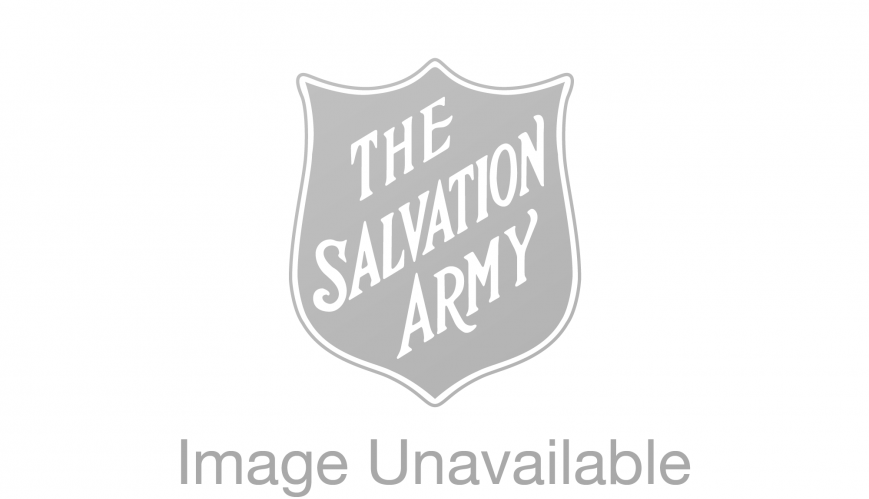.jpg)
Bracing for a surge in demand for Salvo services
19 May 2020
Salvation Army volunteers package takeaway meals during the COVID-19 pandemic. (Salvation Army stock image)
The Salvation Army has released a snapshot of how it is responding to the needs arising from the COVID-19 pandemic as part of its national Red Shield Appeal campaign.
Statements have been sent to media outlets across the country, urging the public to support the appeal, which is completely digital for the first time ever.
“With the economy likely to suffer in the years to come, we’re expecting a larger than normal need from people from all kinds of socio-economic backgrounds,” said Major Brendan Nottle, the face of the Red Shield Appeal this year. “We’re bracing for ongoing increases in the number of people seeking our help with financial problems, homelessness and domestic violence.”
Snapshots of need around the country
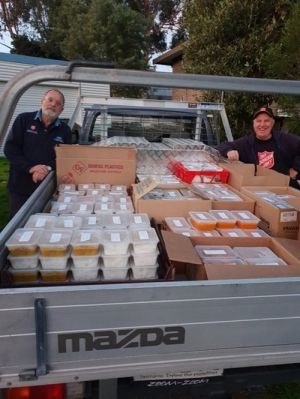 Kingsborough-Huon Corps in Tasmania has partnered with Kingborough Community Missions to deliver meals to the vulnerable during COVID-19. Their volunteers have cooked and donated nutritious food so the Salvos can deliver it to those in isolation, the Street to Home program and Doorways.
Kingsborough-Huon Corps in Tasmania has partnered with Kingborough Community Missions to deliver meals to the vulnerable during COVID-19. Their volunteers have cooked and donated nutritious food so the Salvos can deliver it to those in isolation, the Street to Home program and Doorways.
Tasmania
The Salvation Army is one of three agencies selected to partner with the Tasmanian Government to provide emergency services and support to people in crisis during this time.
The Salvos have been purchasing food for hampers from local businesses to support local economies (using their contacts to secure wholesale prices) and have been packing, then delivering, the hampers to those in need all over the state.
Doorways centres are still open and are providing support across the state, helping people meet their day-to-day expenses, pay unexpected bills and supporting those in crisis.
“No one should ever have to go without the essentials, and with so many people losing their jobs in our local communities, our Doorways services are providing crucial support – now more than ever,” says Stacey Milbourne, State Manager Doorways Program.
“We’ve had to change the way we operate to meet social-distancing requirements, including moving to telephone interviews and assessments, and keeping face-to-face meetings at our offices to under 15 minutes.
Victoria
The Salvation Army Project 614 in Melbourne, having switched to COVID-safe practices, provides meals, clothing and counselling that includes creating pathways out of marginalisation.
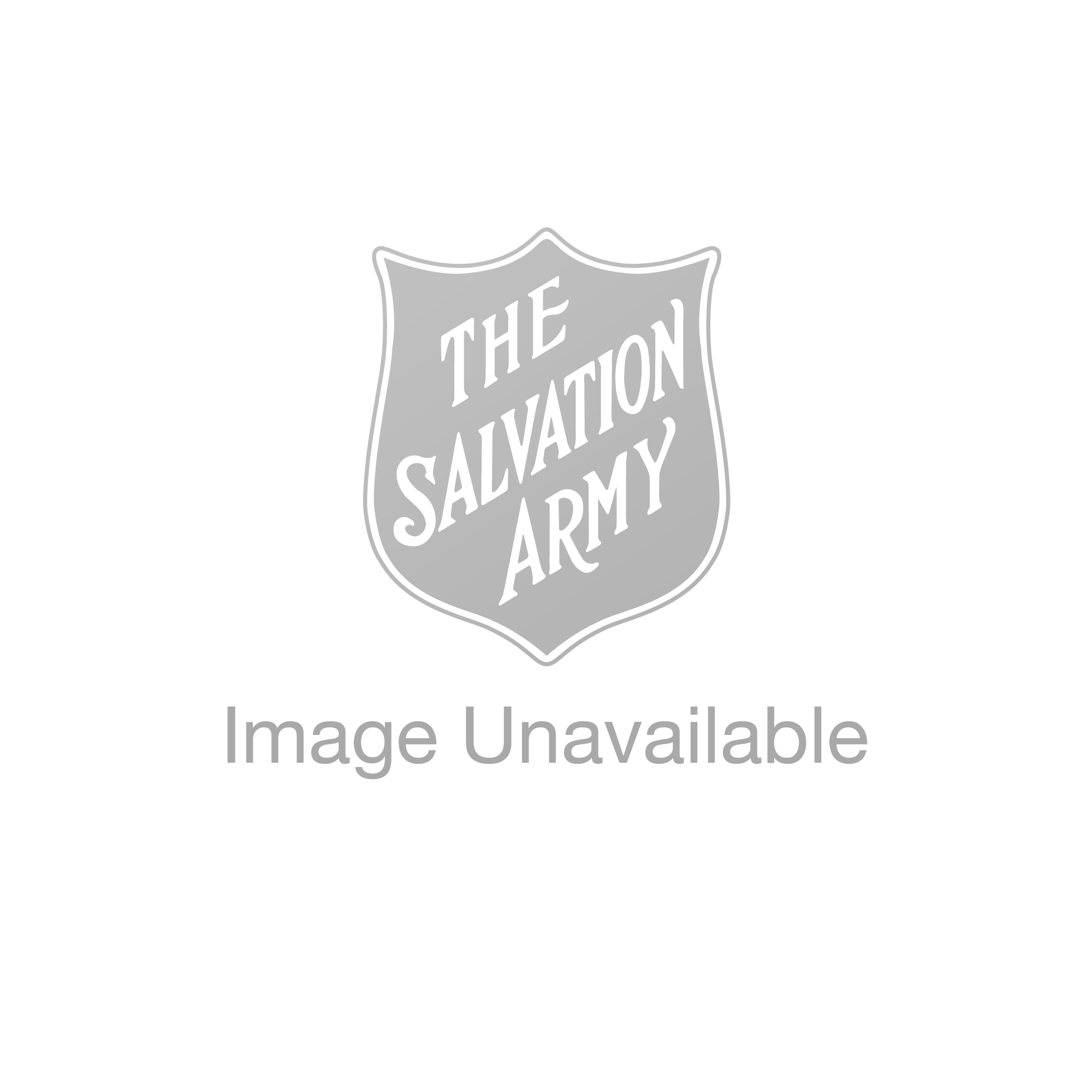.jpg&width=300&height=200) Major Brendan Nottle is the face of The Salvation Army 2020 Red Shield Appeal.
Major Brendan Nottle is the face of The Salvation Army 2020 Red Shield Appeal.
The demand for emergency relief has tripled since the start of the COVID-19 pandemic. The service that typically sees 30 people a day is now seeing more than 90 – many of whom have never asked for help before.
“We had to move fast, since the people we assist are in a high-risk category, so it truly was a matter of life or death,” says Major Brendan Nottle, Project 614 Manager. “We immediately enforced social distancing in all our services and secured donations of essential safety supplies including masks and gloves.
“We had to close our dine-in cafe due to social distancing but are still providing essential meals to our community members through our laneway window service – so people can still come to collect a takeaway meal.
“We’ve particularly seen more men coming to us for help, often with a mate, as they’re embarrassed and don’t really know how to ask for help. But we’re here for anyone who needs a hand up and we encourage people to contact us if they need support.”
The team has also been reaching out every couple of days to the 140 adults and children who are residents at the Army’s Magpie Nest homes, to check on their physical and mental wellbeing.
Magpie Nest is a partnership between the Collingwood Football Club and The Salvation Army that provides housing and health services for the homeless as well as support services for women and children experiencing family violence.
“We’re also taking meals to those who are in our emergency accommodation to ensure that they are okay and as a way of maintaining a connection, to prevent social isolation,” says Brendan. “In addition, we’ve also worked hard to help get 216 homeless people off the streets and into hotel accommodation to help combat the spread of COVID-19.”
Queensland
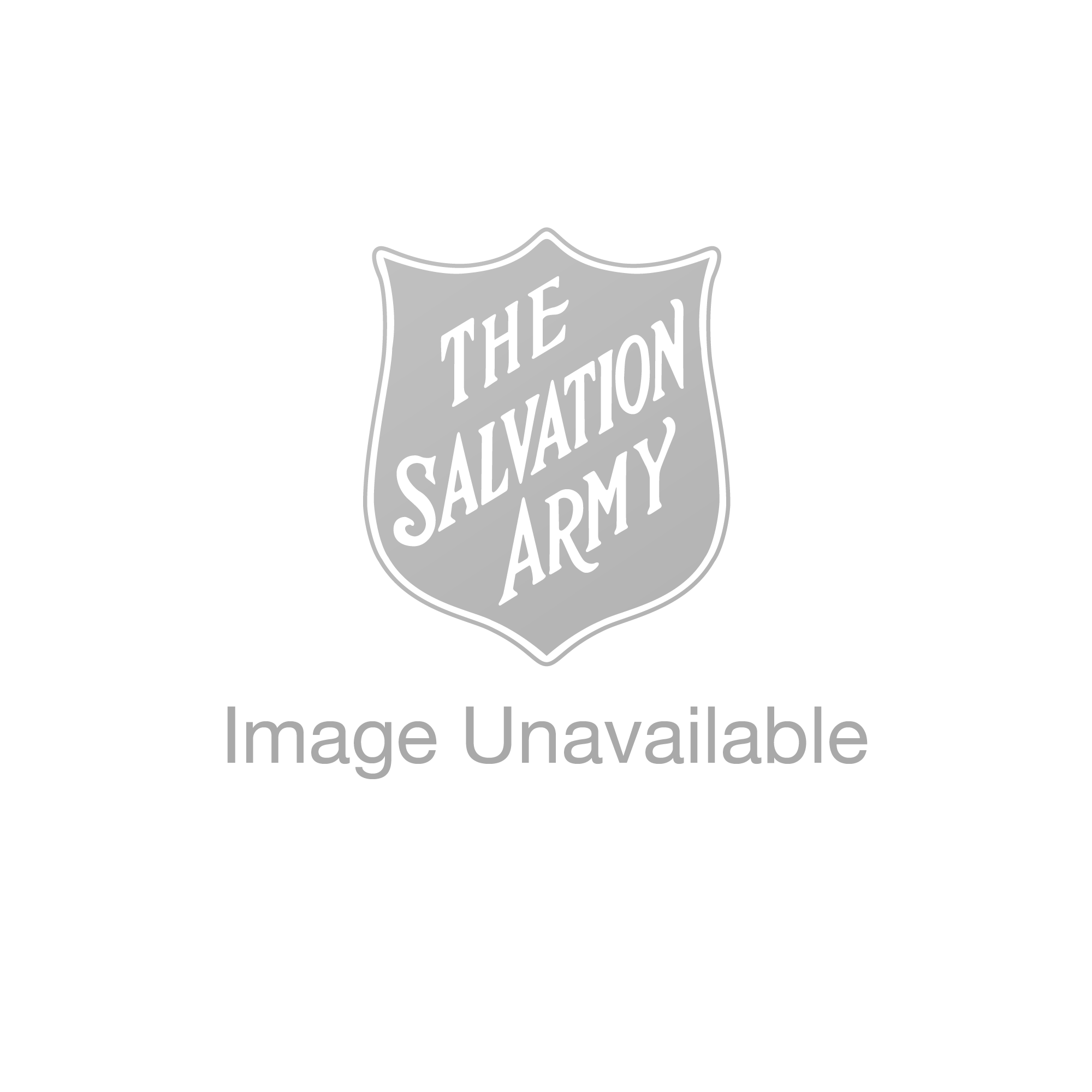.jpg&width=300&height=450) Paul Maunder and his team at Brisbane's Streetlevel Mission have had to adapt the way they serve the community during COVID-19.
Paul Maunder and his team at Brisbane's Streetlevel Mission have had to adapt the way they serve the community during COVID-19.
Brisbane Streetlevel Mission in Spring Hill, which offers assistance to those in crisis with emergency relief, free meals, referrals and emotional and personal support, has had to move away from hosting daily onsite activities, group meals and social gatherings, having switched to COVID-safe practices.
“We used to host large community gatherings, bringing together those in need of food, personal support or social connection – groups as large as 140 people at a time. Obviously, we can’t do that at the moment due to the pandemic, but we’re still finding ways to support those in the community who need our help,” says Paul Maunder, Team Leader, Brisbane Streetlevel Mission.
“We are providing pre-packaged takeaway meals that are cooked on-site by our volunteers. People can also receive other essential grocery/pantry items and even a barista-made coffee.
“This meal pick-up service gives us the opportunity to continue to connect with our community members and to offer them support with other aspects of their lives, including referrals for housing and other financial support as needed.”
The team from Brisbane Streetlevel Mission is also staying connected with community members they support through regular phone calls and social media.
South Australia
With the highest unemployment rate in the country before the COVID-19 pandemic struck, restrictions imposed to safeguard the community have further impacted the South Australian economy, leading more people from all walks of life to seek urgent help from The Salvation Army.
“In Noarlunga, we’ve started to provide support services via telephone instead of face-to-face in our offices,” says Captain Robert Casburn, Noarlunga Corps Officer. “We’ve also introduced a new initiative where people in need can ring and receive food vouchers via email or request delivery of a food hamper if they are isolated.
“People from more affluent suburbs are contacting us for the first time after losing their jobs and needing an urgent hand up. We expect to see the number of people who require assistance increase even more once the government’s JobKeeper and additional funds under JobSeeker conclude in the coming months.”
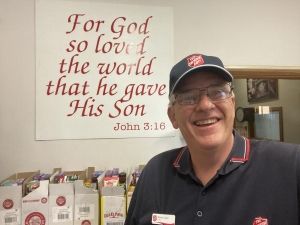 Captain Darryn Lloyd at Port Lincoln Salvos operates a drive-through assistance service.
Captain Darryn Lloyd at Port Lincoln Salvos operates a drive-through assistance service.
In response to COVID-19 restrictions, the Salvos in Port Lincoln have started a drive-through welfare service, which runs every Monday and Wednesday morning, providing fresh bread, fruit, meat and pantry items.
“We encourage anyone in the local community who needs emergency food assistance to reach out. We’re also delivering food hampers to those who call us and ask for help,” says Captain Darryn Lloyd, Port Lincoln Corps Officer. “Unlike many community organisations, we’re still keeping the doors open to help those in need – we’re just serving people in innovative, new ways and adapting through this crisis.”
The Salvos and Copper Coast Council have been working together to support isolated people by providing a shopping delivery service, with the Salvos coordinating all home deliveries and visits.
“Anyone requiring assistance should contact us and we can organise the delivery of an essential care pack,” says Captain Karen Armstrong, Copper Coast Corps Officer. “Our shower block is also still open Monday to Friday. Those who need to access this service are provided with a hygiene pack which includes a towel and toiletries.”
New South Wales
Sydney Streetlevel Mission in Surry Hills offers assistance to anyone in need, including those in crisis, providing emergency relief, free meals as well as emotional and personal support at this trying time. The service has seen a 60 per cent increase in demand for meals but now, having switched to COVID-safe practices, offers this support by serving a free takeaway lunch each day rather than a sit-down meal.
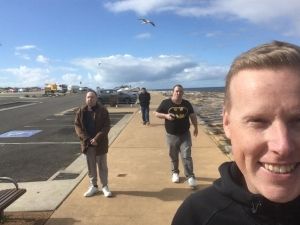 Social-distancing restrictions haven’t stopped the Sydney Streetlevel Mission team in Sydney (Mission Leader Mitchell Evans pictured right) keeping connected and offering assistance to those who need it.
Social-distancing restrictions haven’t stopped the Sydney Streetlevel Mission team in Sydney (Mission Leader Mitchell Evans pictured right) keeping connected and offering assistance to those who need it.
“We’ve been providing about 80 takeaway lunches every day. It’s a great opportunity for us to still connect with our most vulnerable community members and see how they’re going, both mentally and physically,” says Mitchell Evans, Mission Leader, Sydney Streetlevel Mission.
“We encourage them to seek help from medical professionals if needed. Due to a developed trust we hold in the community, we are in a position where we can also have a respectful conversation about their personal hygiene and encourage them to wash their hands and shower to help stop the spread of the virus. We can also point them in the right direction of other services that may be able to assist them.
“We’re also regularly ringing community members to check in on them. Many have no family and are extremely isolated, it is important for us to be making contact during these difficult times. We encourage anyone in need to contact The Salvos Assessment Line,” he says.
In Liverpool, local Salvos are currently serving 250 meals each week, up by 130. Emergency relief is also up by 60 per cent, to 240 people a week.
The Salvos in Sydney’s north have been able to give out 450 boxes of fruit and vegetables and loaves of bread to people experiencing hardship – with a further 160 boxes being delivered to the elderly, people with disabilities and the unemployed.
Local Salvos have also been assisting vulnerable shoppers during the dedicated shopping hours at local supermarkets and handing out water to people in queues at Centrelink.
ACT
The Salvation Army Recovery Services in Canberra is currently at full capacity and have had to implement significant changes in the way they are operating as a result of the COVID-19 crisis, helping 36 people to tackle their alcohol, other drug and gambling issues while living safely on-site during the pandemic.
“We provide a range of services and support to people struggling with drug and alcohol issues, their families and significant others whose lives have been affected by addiction, but we’ve had to adapt almost every aspect of our operations to meet social-distancing measures and protect those who are living with us,” says Captain Daniel Ross, who operates the service with Captain Amanda Ross in Canberra.
Support usually offered includes group discussions, one-on-one sessions, alcohol and drug education, chapel services, work activity therapy and vocational training.
“Due to the pandemic, visitors are not currently allowed, but we’re using technology to keep our participants connected with their loved ones. We’ve also modified meal times and room set-ups to meet social-distancing rules and have implemented additional sanitisation measures,” says Captain Amanda Ross. “We’ve also moved sessions with external providers such as counsellors away from face-to-face and now use video link or telephone instead.”
“We’re bracing ourselves for a huge surge in demand from the community for our support services in the coming months as the additional stress from COVID-19 isolation manifests itself,” says Captain Daniel Ross.